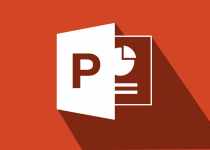Government Blockchain: Transforming Public Services and Ensuring Transparency

Table of Contents
Introduction
Blockchain technology has been making waves in various industries, revolutionizing the way data is stored, managed, and shared. Governments around the world are recognizing the potential of blockchain to enhance public services, streamline operations, and ensure transparency. In this article, we will explore the concept of government blockchain, its benefits, and the potential challenges that governments may face when implementing this technology.
What is Government Blockchain?
Government blockchain, also known as blockchain in the public sector, is the application of blockchain technology to government functions and services. It involves using blockchain to improve the efficiency, security, and transparency of government processes. This technology has the potential to transform various aspects of public administration, from voting systems to record-keeping, identity verification, and supply chain management.
Benefits of Government Blockchain
1.Transparency and Trust
One of the most significant advantages of government blockchain is its ability to enhance transparency and trust in public services. Blockchain’s distributed ledger technology ensures that all transactions and data are recorded in a tamper-proof manner, accessible to all relevant parties. This transparency reduces the risk of corruption and fraud within government agencies, as every action can be tracked and verified.
2. Secure Identity Verification
Government-issued identification documents, such as passports and driver’s licenses, can be stored on blockchain, providing a secure and immutable way to verify identities. This not only reduces the risk of identity theft but also streamlines processes like border control, voter registration, and public benefit distribution.
3. Efficient Voting Systems
Implementing blockchain in voting systems can significantly enhance the integrity and efficiency of elections. By creating a transparent and tamper-proof record of each vote, governments can ensure that election results are accurate and secure. This can lead to increased public trust in the electoral process.
4. Streamlined Supply Chain Management
Blockchain technology can be used to optimize the supply chain management of government agencies, ensuring that goods and services are procured and delivered efficiently. This can lead to cost savings and improved public service delivery.
5. Reduced Administrative Overheads
Smart contracts, a feature of blockchain, can automate and streamline various administrative processes. This can result in significant cost savings for government agencies by reducing the need for manual intervention and paperwork.
Challenges of Implementing Government Blockchain
While the potential benefits of government blockchain are clear, there are several challenges that governments must address when implementing this technology.
1.Regulatory Framework
Governments need to develop appropriate regulatory frameworks to govern the use of blockchain technology in public services. These regulations should ensure the protection of user data, establish liability in case of disputes, and provide a clear legal framework for smart contracts.
2. Integration with Legacy Systems
Many government agencies operate on legacy systems that may not be compatible with blockchain technology. Integrating blockchain into these systems can be a complex and costly process, requiring careful planning and migration strategies.
3. Scalability and Energy Consumption
Blockchain networks, particularly those based on Proof of Work (PoW), can be energy-intensive and have scalability limitations. Governments must consider the environmental impact and scalability issues when implementing blockchain solutions.
4. Privacy and Data Security
While blockchain ensures the security of data once it’s on the chain, ensuring the privacy and security of data before it’s entered into the blockchain is essential. Governments must implement robust cybersecurity measures to protect sensitive information.
5. Education and Training
Government employees and officials may need training to understand and effectively use blockchain technology. This includes understanding how to interact with blockchain systems, manage digital identities, and interpret blockchain data.
Case Studies: Governments Embracing Blockchain
Several governments worldwide have already taken steps to implement blockchain technology in various sectors:
- Estonia: Known for its e-Residency program and e-governance initiatives, Estonia has integrated blockchain into identity verification and e-residency services.
- Dubai, UAE: The Dubai government has launched the Dubai Blockchain Strategy, which aims to have all government documents on blockchain by 2020. This includes birth certificates, visa applications, and license renewals.
- Georgia, USA: The state of Georgia uses blockchain for land title registration to ensure transparency and security in property ownership records.
Conclusion
Government blockchain has the potential to transform public services, making them more efficient, transparent, and secure. While there are challenges to overcome, forward-thinking governments are already exploring and implementing blockchain solutions in various sectors. As technology continues to evolve, we can expect to see more governments embracing blockchain to enhance their operations and better serve their citizens. Blockchain is not just a buzzword; it’s a technology that has the power to reshape the relationship between governments and the people they serve.



